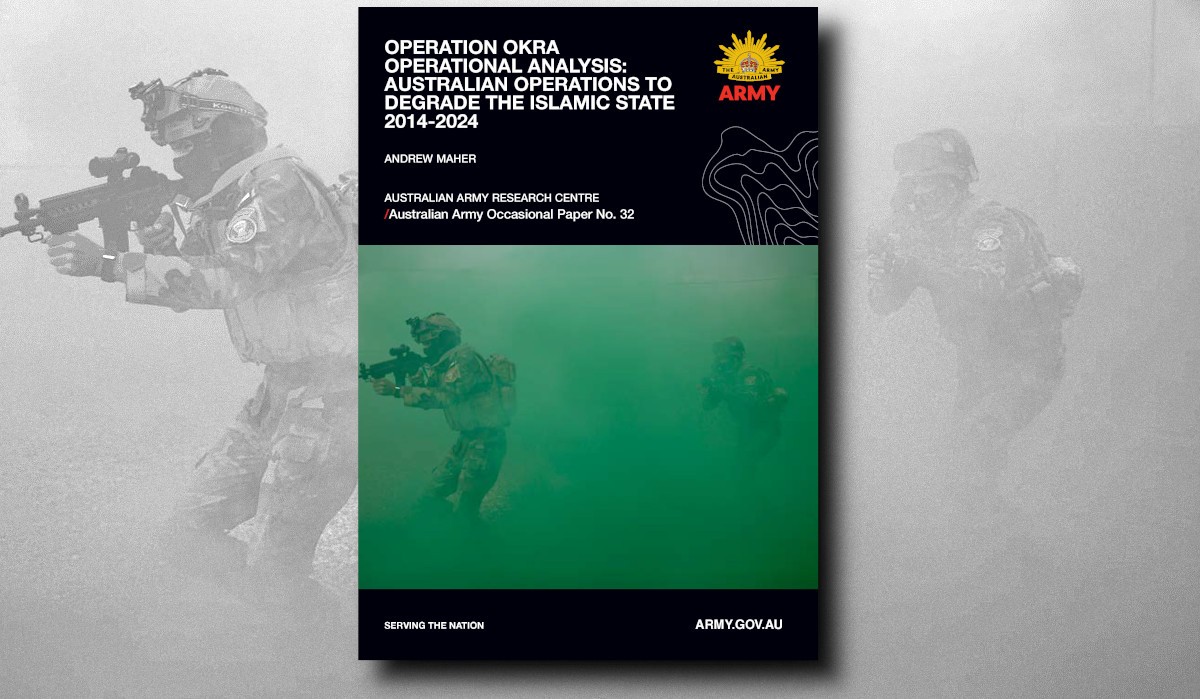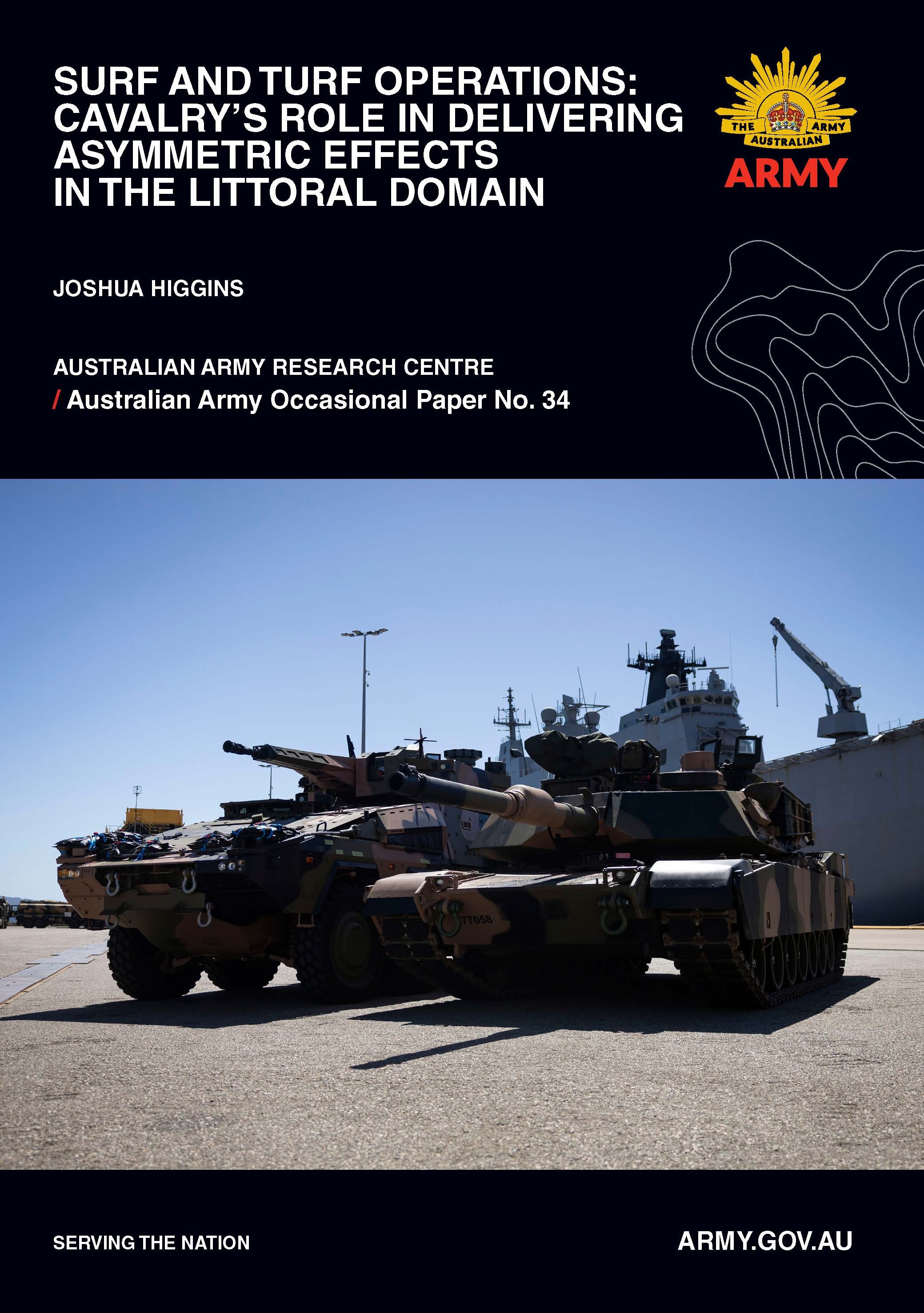Introduction
Train, advise and assist missions play a pivotal role in the Indo-Pacific region, where fostering stability and security is of utmost importance. These missions involve the Australian Army working closely with partner nations to build their military capabilities, enhance their operational effectiveness, and promote regional cooperation. By leveraging these missions within a deterrence framework, the Australian Army both contributes to regional stability and also reinforces the message that any potential aggressor will face a unified and capable defence force. The importance of these missions cannot be overstated, as they not only enhance the capabilities of partner nations but also establish lasting relationships built on trust, cooperation, and shared strategic objectives. This Land Power Forum post explores how the Australian Army's role in train, advise and assist missions contributes to strengthening regional stability and security in the Indo-Pacific, with a particular focus on leveraging these missions within a deterrence framework.
Enhanced Language and Cultural Training
Significance of Language and Cultural Proficiency for Successful Missions
Language and cultural proficiency are vital for the success of train, advise and assist missions in the Indo-Pacific region. Effective communication is the cornerstone of building relationships and establishing trust with local forces. By investing in language training programs that focus on languages spoken in the region, such as Mandarin, Indonesian, or Vietnamese, the Australian Army can bridge the linguistic gap and enhance its ability to interact and collaborate with their counterparts. Furthermore, understanding the nuances of local customs, traditions, and social dynamics through cultural immersion training allows Australian soldiers to navigate sensitive situations with cultural sensitivity, fostering a deeper understanding and mutual respect between the forces involved.
Investing in language programs and cultural immersion training
To strengthen the Australian Army's role in train, advise and assist missions, it is crucial to invest in comprehensive language programs and cultural immersion training. This investment can encompass both classroom-based learning and practical exercises that simulate real-world scenarios. Language programs should focus on developing not only conversational skills but also specialised military terminology to facilitate effective communication during joint operations. Cultural immersion training can involve immersive experiences where soldiers are exposed to the local customs, traditions, and social dynamics of the Indo-Pacific region. This firsthand exposure enables soldiers to develop a deeper appreciation for the local culture and builds their ability to adapt to different environments, ultimately enhancing their effectiveness in train, advise, and assist missions.
Benefits of improved communication and relationship-building
Improved language and cultural proficiency within the Australian Army yields numerous benefits in train, advise and assist missions. Firstly, it enables more effective communication with local forces, ensuring clear instructions, shared understanding, and seamless coordination. This enhanced communication not only aids in the transfer of military knowledge but also facilitates the building of lasting relationships based on mutual respect and trust. Additionally, improved cultural understanding fosters cultural sensitivity, enabling Australian soldiers to navigate potential cultural misunderstandings and reducing the likelihood of unintentional offense. Stronger communication and relationship-building capabilities establish a solid foundation for successful train, advise and assist missions, as they enable effective mentoring, knowledge sharing, and capacity building, leading to strengthened regional stability and security in the Indo-Pacific.
Collaborative Training Exercises
Importance of joint training sessions and exercises
Joint training sessions and exercises hold significant importance in enhancing the role of the Australian Army in train, advise and assist missions in the Indo-Pacific. These exercises provide a platform for Australian forces to work alongside their regional counterparts, fostering cooperation and interoperability. By conducting joint training, soldiers from different nations can learn from each other's expertise, tactics, and strategies, thereby expanding their collective knowledge and skill sets. This collaborative approach promotes a deeper understanding of each other's capabilities, strengths, and limitations, laying the foundation for effective coordination and joint operations in the future.
Enhancing interoperability and trust with regional partner nations
Collaborative training exercises play a crucial role in enhancing interoperability and building trust with regional partner nations. When forces from different countries come together to train, they develop a shared understanding of military procedures, communication protocols, and command structures. This shared knowledge leads to increased interoperability, enabling seamless coordination during joint operations. Moreover, these exercises provide an opportunity for Australian soldiers to build personal relationships with their regional counterparts. Trust and mutual respect are crucial components of successful train, advise and assist missions. Collaborative training exercises serve as a platform to foster these qualities. The establishment of strong interpersonal connections between Australian soldiers and their regional counterparts lays the groundwork for effective cooperation and teamwork, further strengthening regional stability and security.
Gaining valuable experience and sharing best practices
Engaging in collaborative training exercises allows the Australian Army to gain valuable experience and share best practices with regional partner nations. These exercises provide a platform for soldiers to test and refine their skills in realistic scenarios, exposing them to a variety of challenges and complexities they may encounter during actual operations. Through these exercises, Australian forces can learn from the experiences and perspectives of their regional counterparts, gaining insights into regional dynamics and specific challenges faced by partner nations. This exchange of knowledge and best practices enables continuous improvement and innovation within the Australian Army. By actively participating in collaborative training exercises, the Australian Army contributes to the collective security and stability of the Indo-Pacific region while enhancing its own capabilities and readiness to undertake train, advise and assist missions.
Complementary Capabilities and Capacity of the ADF, including Army
Overview of the Australian Defence Force's (ADF) capabilities
The Australian Defence Force (ADF) possesses a range of capabilities that contribute to its role in train, advise and assist missions in the Indo-Pacific region. The ADF is a modern, technologically advanced force with a diverse array of assets and expertise across land, sea, and air domains. This includes highly skilled personnel, advanced intelligence capabilities, robust logistics systems, and state-of-the-art equipment. The ADF's capabilities are designed to support regional stability and security, and its commitment to interoperability and cooperation ensures effective coordination with partner nations. With its extensive resources and experience, the ADF is well-positioned to provide valuable support in building the capacity of regional forces and promoting regional security cooperation.
Specific contributions of the Australian Army
The Australian Army plays a vital role in train, advise and assist missions, offering specific contributions that strengthen regional stability and security in the Indo-Pacific. The Army's expertise lies in its land-based operations, including infantry, armoured, and mechanised units. Through its highly skilled soldiers, the Australian Army brings professional training, operational experience, and specialised knowledge to the table. The Army's contributions extend beyond combat capabilities, encompassing areas such as disaster relief, peacekeeping operations, and civil-military cooperation. The Army's versatility and adaptability enable it to effectively train, advise, and assist partner nations, ensuring the development of capable and self-sufficient forces that can contribute to regional stability.
Supporting regional stability and security through a comprehensive approach
The Australian Army, as part of the broader ADF, adopts a comprehensive approach to support regional stability and security through train, advise and assist missions in the Indo-Pacific. This approach goes beyond military training and encompasses broader aspects of security, including governance, humanitarian assistance, and development cooperation. The Army recognises the importance of civil-military cooperation, working closely with local governments, non-governmental organisations, and other civilian stakeholders to address the underlying causes of insecurity and promote sustainable development. By combining military expertise with civilian perspectives, the Australian Army contributes to a holistic approach that addresses not only the immediate security needs but also the long-term stability of the region. Through its complementary capabilities and comprehensive approach, the Australian Army plays a crucial role in fostering regional stability and security in the Indo-Pacific.
Conclusion
In conclusion, train, advise and assist missions play a crucial role in strengthening regional stability and security in the Indo-Pacific. These missions enable the Australian Army to work closely with partner nations, enhancing their military capabilities, promoting cooperation, and building lasting relationships. By investing in enhanced language and cultural training, the Australian Army can provide its personnel with the necessary skills to effectively communicate, build relationships, and navigate diverse cultural landscapes. Collaborative training exercises further contribute to interoperability and trust among regional partner nations, fostering stronger coordination and joint operations. The Australian Army's complementary capabilities, as part of the broader ADF, provide expertise and support that contribute to the overall stability of the region. As the Indo-Pacific faces evolving security challenges, the future holds promising prospects for continued collaboration, growth, and the strengthening of regional partnerships. Through its ongoing commitment to train, advise and assist missions, the Australian Army will continue to play a pivotal role in fostering regional stability and security, promoting cooperation, and building a safer and more prosperous Indo-Pacific.
This article is a submission to the Winter Series 2023 Short Writing Competition, 'Army’s Role in Train, Advise and Assist Missions'.



